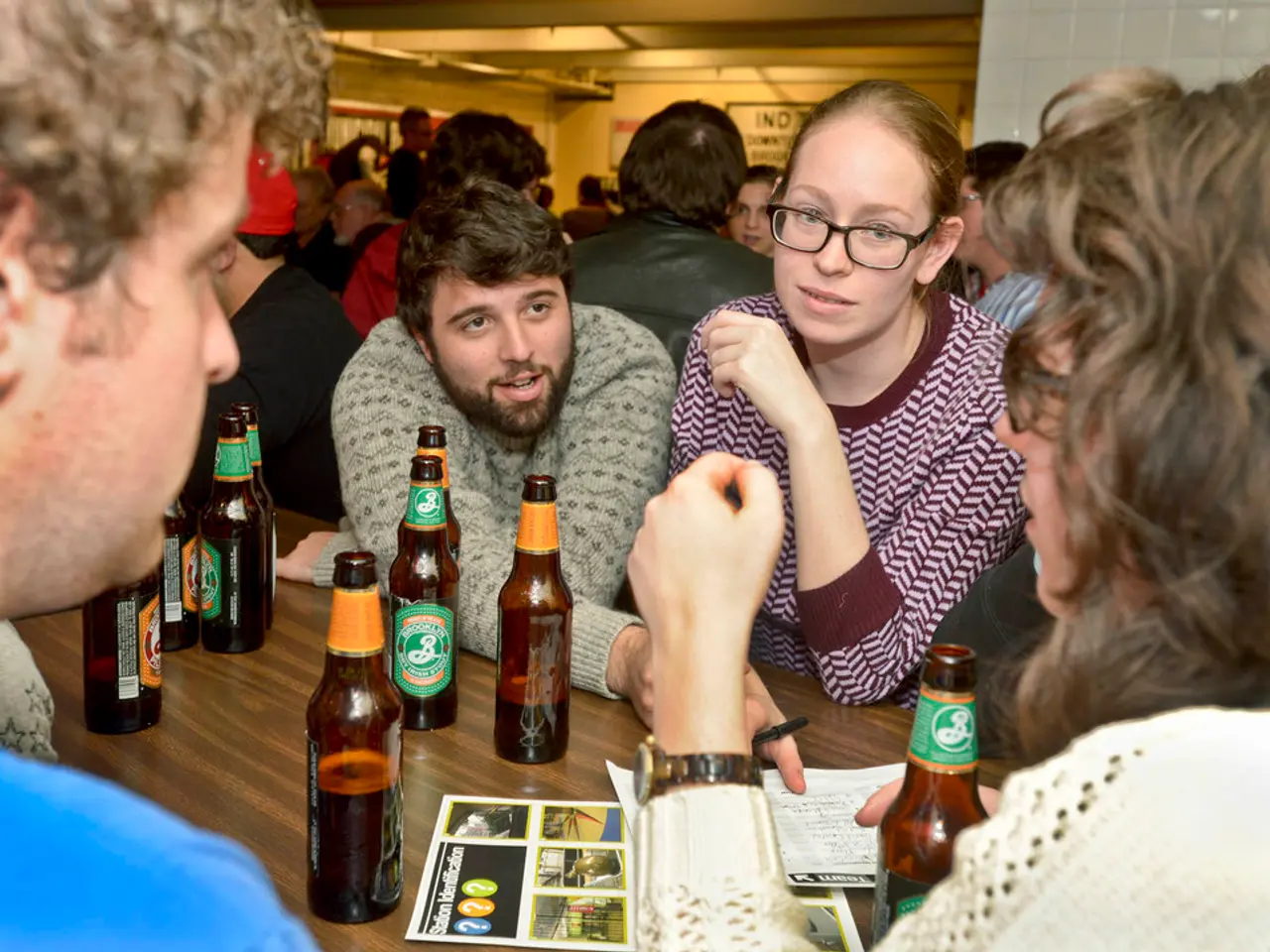Beer sales permitted in the Uni district once more
In the bustling university district of Maxvorstadt in Munich, late-night kiosks, known as "Spätis," have seen a change in their operating hours due to recent enforcement of local regulations. These regulations aim to address noise, litter, and disturbances affecting residents.
The new rules dictate that kiosks must stop selling beer by 10 p.m., and snack items like chips must be covered or removed after 8 p.m. These restrictions apply to about five kiosks near Ludwig Maximilian University.
These changes reflect the enforcement of the existing Bavarian shop closing law, which requires most stores to close by 8 p.m. However, kiosks classified as "permit-free eateries" have limited exceptions allowing them to sell some drinks, tobacco, and sweets past that time. However, chips and bottled beer do not qualify for extended sales due to residents’ complaints about late-night disturbances linked to kiosk sales.
Gas stations are exempt from these restrictions because their goods are considered "travel necessities," allowing them to sell beer and snacks later, a distinction viewed by some as an unfair double standard.
Despite these restrictions, there are no indications of planned relaxations of these rules in the immediate future. Enforcement has intensified recently, with the primary concerns being reducing noise, minimizing litter, and preventing late-night public disorder in this popular student area.
However, a recent development has seen the temporary lifting of the beer sales ban for five kiosks and one establishment in Munich's university district. This decision was initiated by Mayor Dominik Krause, who aims to find a good solution that respects the interests of residents and maintains spaces for young people.
Krause has stated that the interests of residents are completely justified and it is unacceptable for pedestrian areas to be littered with glass shards and used as toilets. He has appealed to revelers to take consideration to achieve a good coexistence. Kiosk operators have been instructed to ensure peace in the wider vicinity.
It's worth noting that the area around Ludwig-Maximilians-Universität is a popular nightlife district with many bars and establishments. Affordable alternatives like kiosks are important for enabling community regardless of one's financial situation. The city has emphasized that chips and hard liquor do not belong to the privileged range of goods for kiosks.
The Shop Closing Act in Bavaria allows kiosks to sell a limited range of goods after 20:00, but only kiosks operating a parallel establishment may sell bottled beer, non-alcoholic drinks, tobacco, and sweets, and the selection is limited. Krause has warned that the beer sales ban will be reinstated if the situation does not improve.
These regulations aim to balance business operations with residential quality of life in Munich’s busy university district.
Read also:
- Weekly happenings in the German Federal Parliament (Bundestag)
- Southwest region's most popular posts, accompanied by an inquiry:
- Discussion between Putin and Trump in Alaska could potentially overshadow Ukraine's concerns
- Tinubu's administration allegedly causing issues within every political party as Peter Obi's name surfaces - Obidient Movement asserts






